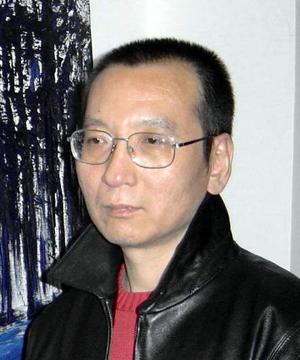Chinese dissident Liu Xiaobo won the Nobel Peace Prize because of ties between human rights and peace, but the leader of the Norwegian committee awarding the prize also made it clear that it’s meant to criticize China’s track record on human rights. “We have a responsibility to speak out when others can’t,” Thorbjørn Jagland said after Friday’s announcement.

The 54-year-old Liu, currently serving an 11-year prison term in China for allegedly “inciting subversion of state power,” is a human rights activist and former university professor who has urged political reform in China for years. He was among those who did not give up his efforts after the Tiananmen Square protests in 1989, and he thus has been repeatedly detained and arrested by government authorities.
The Nobel Committee awarded him the Peace Prize “for his long and non-violent struggle for fundamental human rights in China.” The committee stated that it long has believed there is a “close connection” between human rights and peace, and that such rights “are a prerequisite for the ‘fraternity between nations’ of which Alfred Nobel wrote in his will.”
Jagland, who heads the committee of five Norwegians charged with awarding the Nobel Peace Prize, noted that China “has become a great, big power” in the world, both politically and economically, and thus has “increased responsibility” regarding political rights. He made it clear the prize was aimed at criticizing China’s “breach of several international agreements” as well as its own provisions for human rights.
“It is normal that big powers should be under criticism and debate,” Jagland told reporters gathered at the Nobel Institute in Oslo. “When China is rising as a power, we should have the right to criticize, and demonstrate that China, too, should be subject to debate.”
Liu had been viewed as a top contender for the Peace Prize, so much so that Chinese authorities have, on several occasions, felt it necessary to warn Norwegian politicians against a Nobel for Liu. The politicians could then explain that they have no power over the Norwegian Nobel Committee, which Jagland also stressed is “entirely independent” of the Norwegian government and Parliament, even though benefactor Alfred Nobel’s will dictated that it reflect the make-up of the parliament in session.
The prize is nonetheless expected to chill Norway’s relations with China, where authorities view Liu as a criminal. He was convicted in 1991 on charges of “counter-revolutionary propaganda and incitement,” but exempted from criminal punishment at that time. He was later arrested several times and ordered to spend time in a prison camp for re-education. He currently is serving an 11-year prison sentence for “inciting subversion of state power” after writing a document known as Charter 08. The document called for greater freedoms and democratic reforms in China, including an end to one-party rule by the Communists.
The democracy advocate was believed to be spending the day in a prison cell he shares with five others in Jinzhou, about 500 kilometres from Beijing, and likely wasn’t aware he had won the prize. Police were trying to prevent his wife, Liu Xia, from speaking with reporters who had surrounded her home in Beijing on Friday.
The Nobel Peace Prize will likely encourage China’s weak and divided democracy movement, which was broken up after the Tiananmen Square crackdown in 1989. Some China experts don’t think the prize will help, though, and instead infuriate and embarrass the millions of Chinese who support their government.
Read the Norwegian Nobel Committee’s reasoning behind their award here. (external link)
Views and News from Norway/Nina Berglund
Join our Forum if you’d like to comment on this story.

